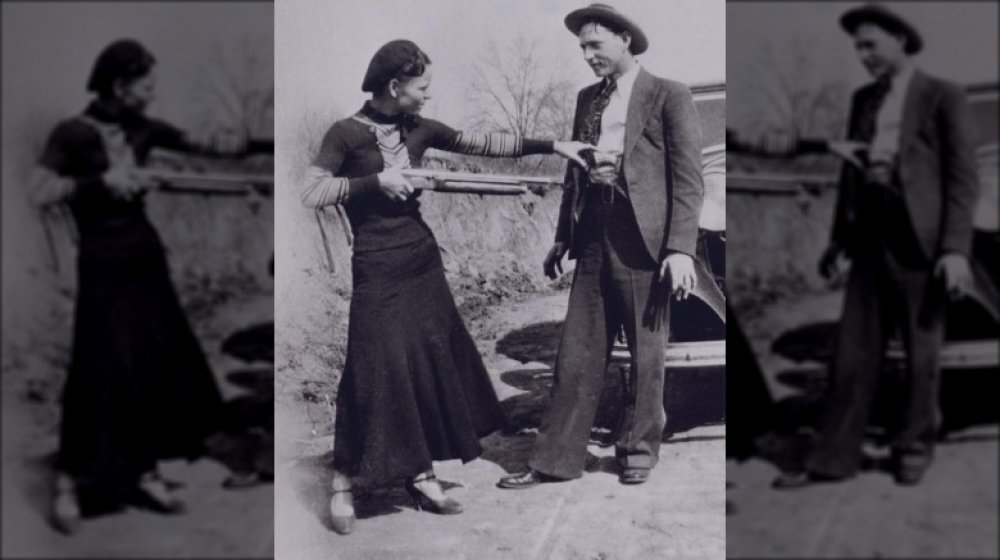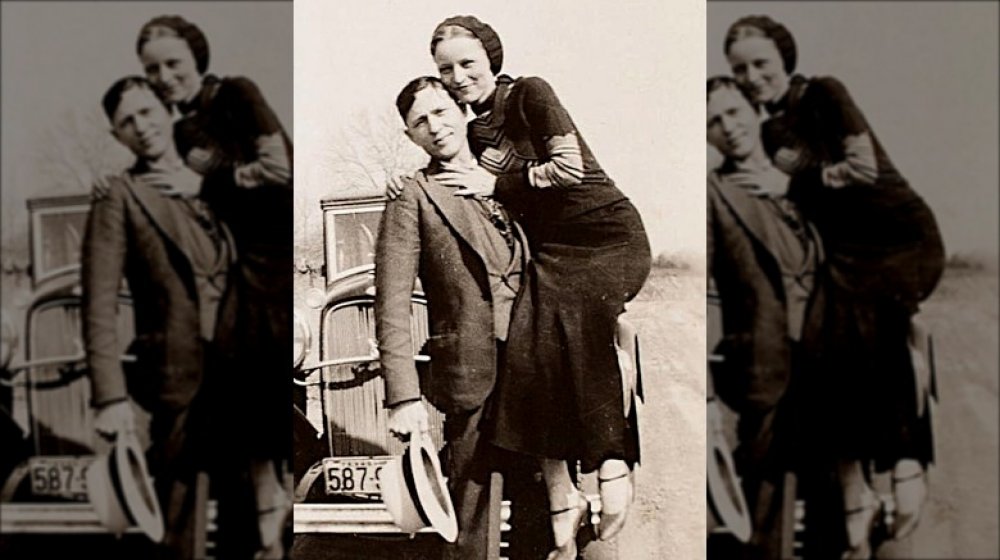The Real Reason Bonnie Parker Had A Limp
Clyde Barrow and Bonnie Parker, infamous thieves and murderers who cut a swath of violent crime across America in the 1930s, had lots of things in common. According to Biography, both came from Texas poverty and spent formative years in the slums of West Dallas. Both were high school dropouts, trapped not only by family and social circumstances but by the opportunities snatched from much of America by the Great Depression. And both of them limped.
The pair of them were short — Barrow was only 5'4", and Parker just 4'11". (One of the men gazing on their dead bodies remarked, "He was just a little bitty fart.") Parker was star-struck with delusions of someday being a performer, preferably a movie star, though she liked to write doggerel poetry, too. For his part, Clyde apparently had some talent as a musician, playing the saxophone with some skill.
Clyde's distinctive gait was a result of one of his stints in prison. He had been convicted of auto theft and sentenced to Eastham Prison Farm, a notoriously brutal prison situation. Desperate, either Clyde or another prisoner — the record isn't clear — chopped off two of Clyde's toes so that he'd be ineligible for work details. What he didn't know was that he would be released just six days later. Which would be funny, if it weren't so tragic.
Clyde carried Bonnie, for good reason
"Tragic" is a good word to use for much of their lives, before and after they met. The Vintage News tells us that Clyde liked to drive fast — and considering his line of work, that isn't such a bad thing — but he wasn't necessarily skilled. While speeding down a rural north Texas road at about 70 miles an hour, Clyde missed a sign warning of a bridge ahead being under construction. The car sailed through the air before landing, hard. The car's battery was broken open and acid poured onto Bonnie's leg, burning away the flesh all the way to the bone. She spent the rest of her life (though that was only a year) with a limp; often Clyde had to carry her.
Not long after, they died on the same day, in the same hail of bullets from a posse led by Frank Hamer. So in the end, they had that in common, too.

